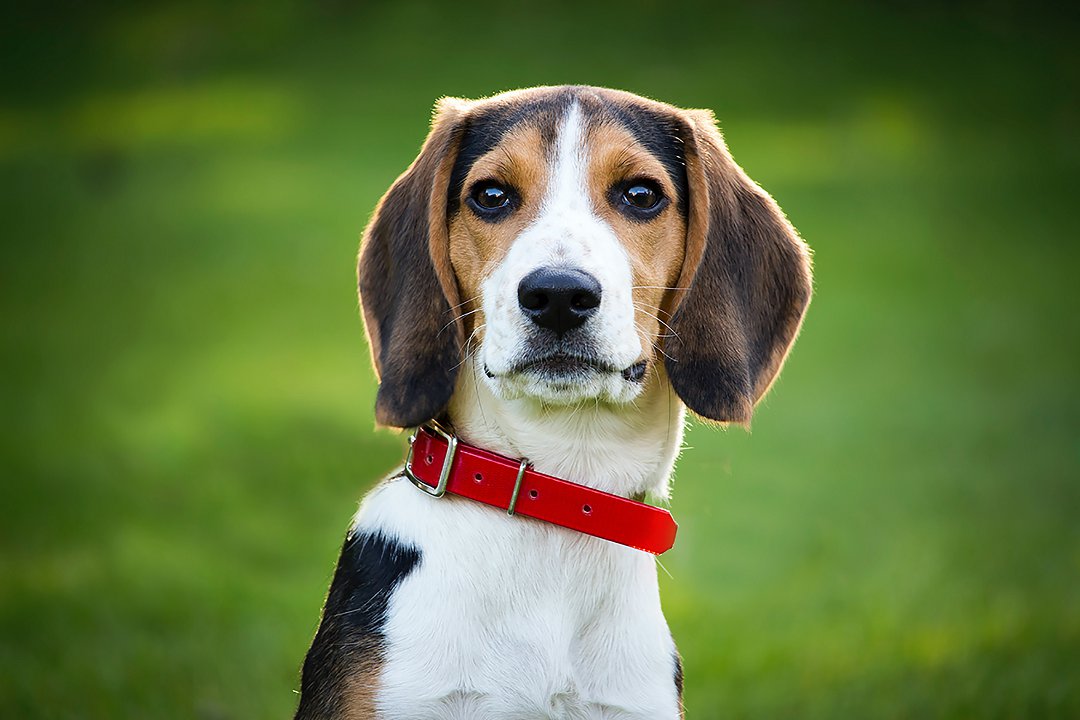Table of Contents
- 1 Introduction: Exploring Different Beagle Breeds: Which One is Best for Training?
- 2 Understanding Beagle Temperaments: Finding the Ideal Training Companion
- 3 Trainability Spotlight: Unveiling the Best Beagle Breeds for Training Success
- 4 FAQs About: Which Beagle is Best for Training
- 4.1 Can all Beagle breeds be easily trained?
- 4.2 Which Beagle breed is considered the easiest to train?
- 4.3 Are there specific Beagle breeds that excel in obedience training?
- 4.4 Are Beagle puppies easy to train?
- 4.5 Are Beagle training classes recommended for training a Beagle?
- 4.6 What are some essential tips for training a Beagle?
Introduction: Exploring Different Beagle Breeds: Which One is Best for Training?
Are you considering adding a Beagle to your family? These adorable and energetic dogs make wonderful companions, but when it comes to training, not all Beagle breeds are created equal. If you’re wondering which Beagle is best for training, you’ve come to the right place. In this article, we will delve into the various Beagle breeds and their trainability, helping you find the ideal training companion for your needs. Whether you’re a first-time dog owner or an experienced trainer, understanding the differences in Beagle temperaments and trainability is crucial. So, let’s dive in and discover which Beagle breed will be the perfect fit for your training journey.
Understanding Beagle Temperaments: Finding the Ideal Training Companion
When it comes to training a Beagle, it’s important to consider their temperament. Each Beagle breed has its own unique personality traits and characteristics that can greatly impact their trainability. Understanding these temperaments will help you find the ideal Beagle companion for training success.
1. Beagle Temperament Variations
- English Beagles: English Beagles are known for their calm and gentle nature. They are generally more laid-back and less energetic compared to other Beagle breeds. This temperament makes them easier to train, especially for novice dog owners.
- American Beagles: American Beagles are more energetic and outgoing. They have a strong hunting instinct and are known for their curiosity and independence. While they can be a bit more challenging to train, their intelligence and eagerness to please can make training a rewarding experience.
- Pocket Beagles: Pocket Beagles, also known as Miniature Beagles, are a smaller version of the breed. They are typically friendly, affectionate, and adaptable. Their smaller size and mellow temperament make them easier to handle and train.
2. Trainability Factors
- Intelligence: Beagles are generally intelligent dogs, but some breeds may have a higher level of intelligence than others. More intelligent Beagle breeds can pick up commands and training cues more quickly.
- Energy Level: Beagles with higher energy levels may require more physical and mental stimulation during training sessions. It’s important to match the energy level of the Beagle breed with your own lifestyle and training goals.
- Sociability: Some Beagle breeds are more social and eager to please, making them easier to train. These breeds thrive on positive reinforcement and enjoy working with their owners.
- Prey Drive: Beagles have a strong prey drive due to their hunting background. Breeds with a higher prey drive may be more easily distracted during training sessions, requiring additional focus and consistency.
3. Best Beagle Breeds for Training Success
- English Beagles: English Beagles are often considered the best breed for training due to their calm and cooperative nature. They are quick learners and respond well to positive reinforcement techniques.
- American Beagles: While American Beagles may require a bit more patience and consistency during training, their intelligence and eagerness to please can lead to successful training outcomes.
- Pocket Beagles: Pocket Beagles are an excellent choice for those looking for a smaller and more manageable Beagle breed. Their adaptability and mellow temperament make them suitable for training in various environments.
Understanding the different Beagle temperaments is crucial in choosing the best Beagle breed for training. By considering factors such as intelligence, energy level, sociability, and prey drive, you can find the ideal training companion that suits your needs and training goals. In the next section, we will shine a spotlight on the trainability of specific Beagle breeds, providing you with valuable insights and recommendations.
Trainability Spotlight: Unveiling the Best Beagle Breeds for Training Success
When it comes to training a Beagle, not all breeds are created equal. Some Beagles are more eager to please and quick to learn, while others may require a bit more patience and persistence. In this section, we will shine a spotlight on the best Beagle breeds for training success, helping you choose the perfect companion for your training journey.
1. Beagle Training Tips and Techniques
Before we dive into the specific Beagle breeds, let’s explore some general training tips and techniques that can be applied to any Beagle:
- Positive reinforcement: Beagles respond well to positive reinforcement, such as treats, praise, and playtime. Rewarding desired behaviors will motivate them to repeat those behaviors in the future.
- Consistency: Establish a consistent training routine and stick to it. Beagles thrive on predictability and will learn faster when they know what to expect.
- Short and frequent sessions: Beagles have a short attention span, so keep training sessions short (around 10-15 minutes) and frequent. This will help them stay engaged and prevent boredom.
2. Beagle Breeds Ideal for Training
a. Pocket Beagle: This smaller version of the Beagle is known for its intelligence and eagerness to please. They are highly trainable and excel in obedience training. Their compact size makes them suitable for apartment living, making them a popular choice for urban dwellers.
b. Show Beagle: Show Beagles may not be the first breed that comes to mind when thinking about training, but they can surprise you with their trainability. While they may have a more independent streak compared to other Beagle breeds, they can still be trained with patience and positive reinforcement.
c. Field Beagle: Field Beagles are bred for their hunting abilities, which means they have a strong instinct to follow scents and explore their surroundings. However, with proper training and socialization, they can be obedient and well-behaved companions. Their high energy levels make them a great fit for active individuals or families.
3. Beagle Training Resources
If you’re looking for additional support in training your Beagle, there are various resources available:
- Beagle training classes: Enrolling your Beagle in a training class can provide structured guidance and socialization opportunities.
- Beagle training books: There are numerous books available that offer step-by-step training guides specifically tailored for Beagles.
- Beagle training commands: Teaching your Beagle basic commands, such as sit, stay, and come, is essential for their safety and well-being. Consider using a clicker or verbal cues to reinforce these commands.
- Beagle training collar: A training collar, such as a martingale or a head halter, can aid in controlling your Beagle during walks and training sessions.
In conclusion, when it comes to training a Beagle, choosing the right breed can make a significant difference in your training success. Whether you opt for a Pocket Beagle, Show Beagle, or Field Beagle, remember to utilize positive reinforcement, consistency, and short, frequent training sessions. Additionally, take advantage of available resources such as training classes, books, and training collars to enhance your training journey. With the right approach and the best Beagle breed for training, you’ll be well on your way to having a well-behaved and obedient Beagle companion.
FAQs About: Which Beagle is Best for Training
Can all Beagle breeds be easily trained?
Yes, while all Beagle breeds have their own unique personalities, they are generally known to be intelligent and eager to please, making them trainable. However, some Beagle breeds may require more patience and consistency in their training.
Which Beagle breed is considered the easiest to train?
The Beagle breed that is often considered the easiest to train is the Pocket Beagle. These smaller Beagles are known for their intelligence and willingness to learn, making them a great choice for training.
Are there specific Beagle breeds that excel in obedience training?
Yes, the Beagle breeds that tend to excel in obedience training are the American Beagle and the English Beagle. These breeds are known for their focus and ability to follow commands, making them ideal for obedience training.
Are Beagle puppies easy to train?
Beagle puppies can be trained, but they do require consistent and patient training methods. It’s important to start training them at a young age and use positive reinforcement techniques to help them learn and develop good behaviors.
Are Beagle training classes recommended for training a Beagle?
Yes, Beagle training classes can be highly beneficial for both the owner and the Beagle. These classes provide structured training sessions, socialization opportunities, and expert guidance, which can greatly enhance the training process.
What are some essential tips for training a Beagle?
- Start training early and be consistent with your methods.
- Use positive reinforcement techniques, such as treats and praise, to motivate your Beagle.
- Keep training sessions short and engaging to maintain your Beagle’s focus.
- Socialize your Beagle with other dogs and people to prevent behavioral issues.
- Seek professional help or join training classes if needed for additional guidance and support.
Remember, every Beagle is unique, so it’s important to adapt your training approach to suit your individual Beagle’s needs and temperament.






Leave a Reply